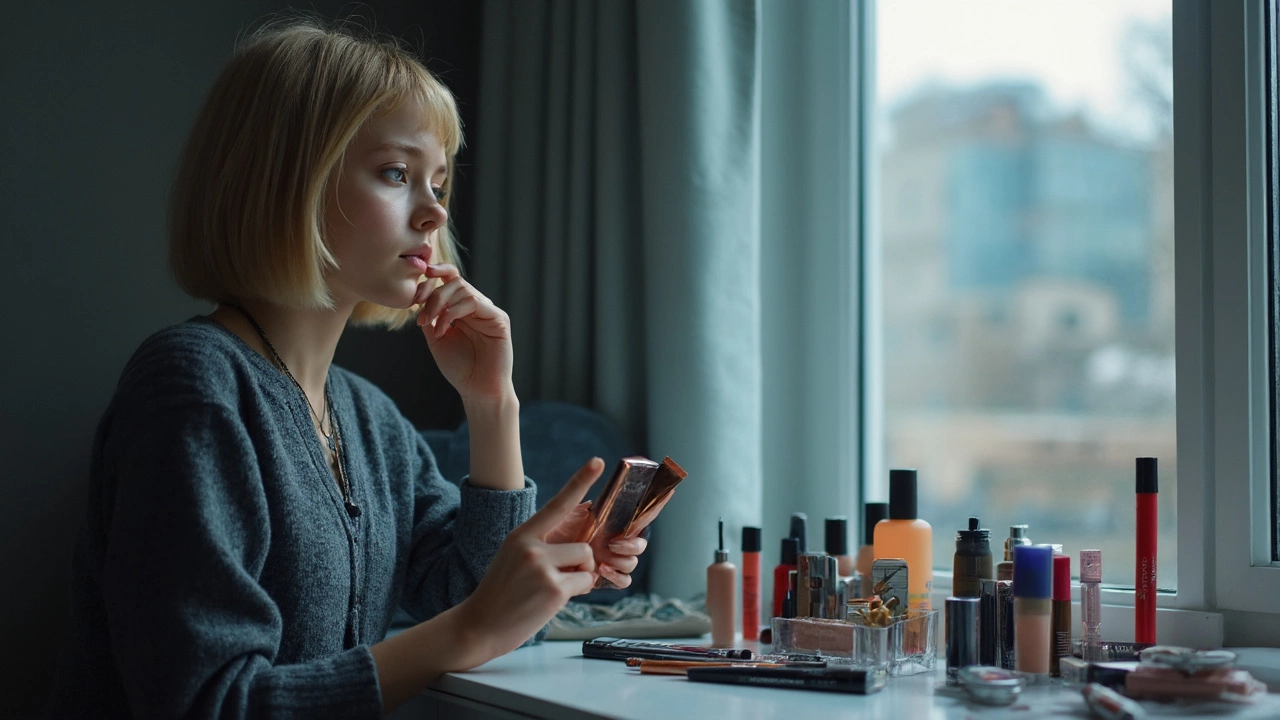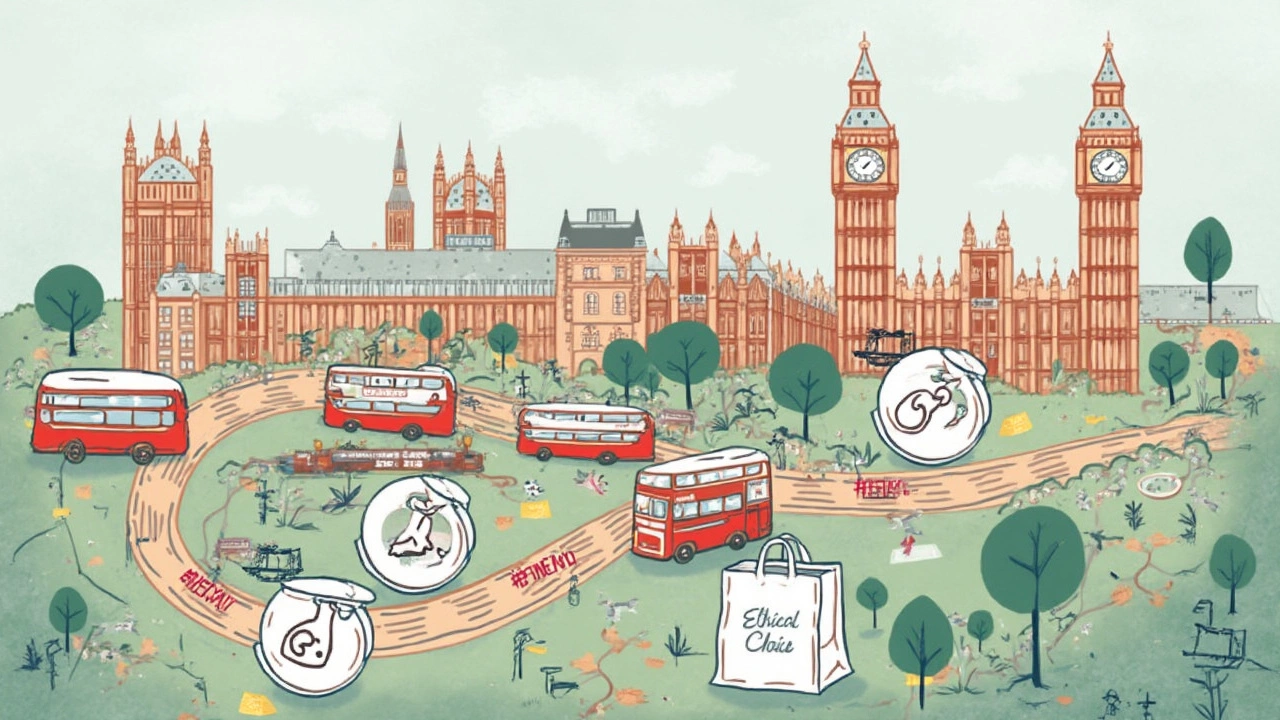
Big beauty brands like Maybelline have been under the spotlight lately, with more people asking if their makeup bag lines up with their values. But the answer to "Is Maybelline cruelty-free now?" isn’t simple—it depends on what actually counts as cruelty-free.
Think buying cruelty-free just means no animal testing? There’s more to it. Brands can say they don’t test on animals themselves, but if their products end up in countries where testing is still mandatory by law, that’s a red flag.
Checking a brand’s status isn’t just about turns of phrase on their website. If you care where your money goes, you’ll want concrete info—who does the testing, where the products land, and what happens when local laws get in the way. It’s not about catching out brands; it’s about knowing the facts so you can feel good about what you buy.
- What Does Cruelty-Free Mean in 2025?
- Maybelline’s Current Animal Testing Policy
- Is Maybelline Sold Where Testing’s Required?
- Alternatives for True Cruelty-Free Makeup
What Does Cruelty-Free Mean in 2025?
People throw around the term “cruelty-free” all the time, but what does it actually mean right now? In 2025, the definition is getting tighter, thanks to a steady push from shoppers and watchdog groups. If you see something marked as cruelty-free these days, it generally means the brand doesn’t test on animals at any stage—either by themselves or through vendors—and doesn’t let anyone else do it on their behalf.
But here’s the kicker: even if a company says they’re cruelty-free, the story can change based on where their products show up on shelves. China used to require animal tests for all foreign cosmetics, but as of January 2024, that law loosened up—for many but not all products. Makeup like mascara and lipstick can skip required animal testing if the company meets extra rules, but “special-use” cosmetics (think sunscreens, hair dyes) might still get tested by authorities.
So, the basics for a cruelty-free brand in 2025:
- No animal testing on finished products or ingredients, at any point.
- No third-party animal testing.
- No selling in places where animal tests are required by law, unless there's a workaround proven to be in place.
Some companies try to blur the lines—maybe they don’t test themselves but let their suppliers or governments do it. That’s why verifying claims is so important. Watchdog organizations like Leaping Bunny and PETA have public lists, but be aware: a fancy logo is nice, but it’s best to double-check their websites for recent updates.
Curious why this matters? About 500,000 animals, mostly rabbits and mice, are still used each year for cosmetics tests worldwide. Here’s a look at recent progress:
| Year | Countries Banning Cosmetic Animal Testing | Estimated Animals Used for Testing |
|---|---|---|
| 2015 | 17 | 650,000+ |
| 2020 | 40 | 550,000+ |
| 2025 | 58 | 500,000+ |
Next time you’re tempted by new makeup, check for a real cruelty-free label and consider what that means in practice right now, not just in theory.
Maybelline’s Current Animal Testing Policy
So, where does Maybelline stand in 2025? The company’s official site says they don’t test finished products on animals unless laws demand it. In plain English, that means they skip animal testing in most places, but if a country requires it for legal reasons, testing can happen.
Here’s the most straight-up fact: Maybelline falls under L’Oréal, a big beauty group. L’Oréal claims to have been a leader in developing alternatives to animal testing. They talk about using advanced science, like reconstructed human skin models, instead of animals.
| Claimed Policy | What It Means |
|---|---|
| No animal testing except when law requires | Some products may be tested where required by law |
| Supports alternatives to animal testing | Uses non-animal methods whenever possible |
| Sold in China | May face mandatory animal testing for some items |
Back in 2023, Maybelline still sold in countries—like mainland China—where animal testing could be required by regulators for imported cosmetics. China’s laws have shifted recently, relaxing requirements for some products, but not all. Products like most makeup (non-special use) might avoid animal tests now, but things like sunscreens or products aimed at kids still get flagged for tougher testing.
If you want to dodge accidental animal testing, keep an eye on the country where you buy your makeup. Official cruelty-free groups like Leaping Bunny and PETA don’t put Maybelline on their “safe” lists yet. If you spot their logo on a brand, it cuts through the noise.
- Look for clear cruelty-free certifications—don’t just trust the packaging.
- Check up-to-date cruelty-free lists online before you shop.
- Watch out for walk-back language in company statements—"except when law requires" usually means it isn't truly cruelty-free everywhere.

Is Maybelline Sold Where Testing’s Required?
Here’s where things get real: Maybelline is sold in places where animal testing is still required by law, especially mainland China. In China, cosmetics that come into stores (so-called “imported cosmetics”) can legally be tested on animals before they hit shelves. Even though there have been moves toward loosening some rules for a few product types, full exemptions aren’t the norm yet, especially for regular makeup and skincare products from international brands.
Let’s spell it out. If a brand sells in China in physical stores, they can’t guarantee that animal testing won’t happen to their products at some stage of the process. Maybelline, owned by L’Oréal, has chosen to keep its products on Chinese shelves. So, no matter what their website says about not testing themselves, these local legal rules mean animals do get involved.
Here's a snapshot based on the most current info available:
| Country | Animal Testing Required? | Is Maybelline Sold Here? |
|---|---|---|
| China (Mainland) | Yes (for most imported products) | Yes |
| United States | No | Yes |
| United Kingdom | No | Yes |
| European Union | No | Yes |
If you want an easy way to spot if a makeup brand is likely to take part in animal testing, just ask: do they sell in China’s physical stores? As long as the answer is yes, the risk is there. Maybelline’s continued presence on these shelves means it can’t claim full cruelty-free status in 2025.
If animal testing is a deal-breaker for you, here’s a tip: look for brands that avoid selling in countries with these laws, or those who only sell online (which usually bypasses this kind of testing). It’s a small move, but your shopping choices do make a difference.
Alternatives for True Cruelty-Free Makeup
If you want makeup that’s really cruelty-free, you’ve got plenty of solid options besides Maybelline. Lots of brands wear their animal-friendly status like a badge—and with good reason. They don’t test anywhere, not even where it’s required, and their supply chains are super transparent.
The easiest way to spot these brands? Look for recognized cruelty-free logos like the Leaping Bunny or PETA’s “Beauty Without Bunnies.” Don’t just trust the words—some companies stretch the truth. These logos mean the brand’s claims have actually been checked by independent sources.
- Maybelline doesn’t have certification from Leaping Bunny or PETA as of 2025.
- Popular alternatives include e.l.f., Covergirl (certified by Leaping Bunny), and Milani. All these brands are widely available and affordable.
- If you want a fully vegan option, check out Pacifica or Milk Makeup—they skip all animal-derived ingredients too.
Here’s a quick look at how some popular brands stack up in a few key areas so you can see who’s walking the walk:
| Brand | Leaping Bunny Certified | PETA Certified | Sells in China* | Vegan Options? |
|---|---|---|---|---|
| e.l.f. | Yes | Yes | No | Almost all |
| Covergirl | Yes | Yes | No | Some |
| Pacifica | No | Yes | No | All |
| Milani | No | Yes | No | Most |
| Milk Makeup | No | Yes | No | All |
*Sells in mainland China where pre-market animal testing is sometimes required.
If you want to make sure your beauty buys are truly cruelty-free, double-check both certifications and a brand’s current animal testing policy. Sites like Cruelty-Free Kitty and Logical Harmony update their lists regularly. Don’t just take a friend’s word for it—the rules and claims change fast.